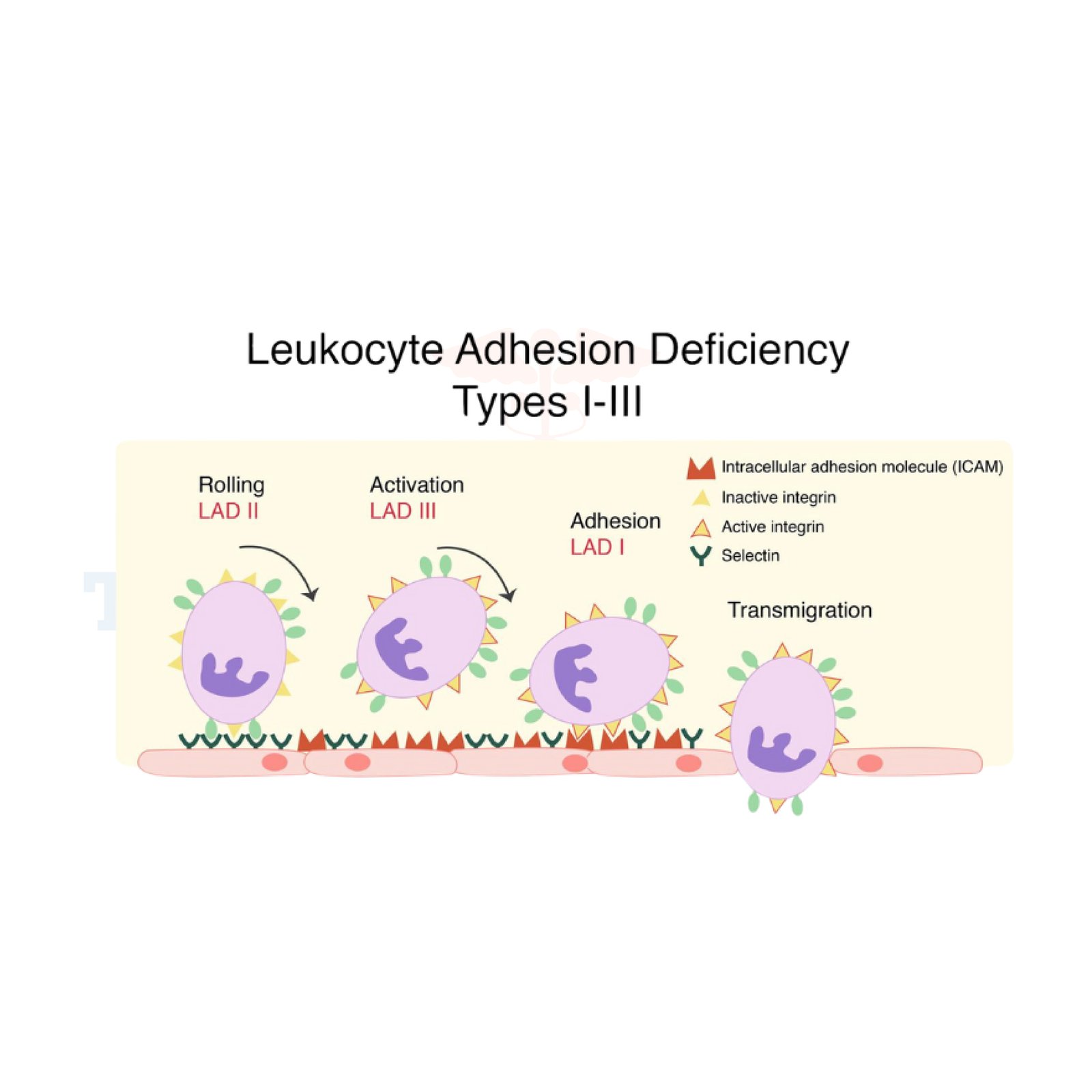What is Leukocyte Adhesion Deficiency?
Leukocyte Adhesion Deficiency (LAD) is a rare genetic disorder that affects the immune system. Individuals with LAD have defective leukocytes (white blood cells), particularly neutrophils, which are crucial for fighting infections.
This defect impairs the ability of leukocytes to migrate from the bloodstream to sites of infection in the body, leading to severe and recurrent bacterial infections.
Side Effects of Leukocyte Adhesion Deficiency
The primary consequence of LAD is susceptibility to recurrent and often severe bacterial infections. These infections can affect various parts of the body, including the skin, respiratory tract, and internal organs. Due to impaired wound healing and chronic infections, individuals with LAD may also experience delayed growth and development.
How is Leukocyte Adhesion Deficiency Diagnosed?
Diagnosis of LAD involves a combination of clinical symptoms, laboratory tests, and genetic analysis. Clinically, patients present with a history of recurrent infections that do not respond to standard treatments. Laboratory tests may reveal low levels of neutrophils or impaired neutrophil function. Genetic testing confirms the presence of mutations in the genes responsible for leukocyte adhesion.
Potential Treatment of Leukocyte Adhesion Deficiency
Treatment for LAD focuses on managing infections and supporting immune function. Antibiotics are used to treat active infections, and prophylactic antibiotics may be prescribed to prevent recurrent infections. Granulocyte transfusions can provide temporary relief by supplementing the patient with functional neutrophils. In severe cases, bone marrow transplantation offers a potential cure by replacing defective hematopoietic stem cells with healthy donor cells.
👉 Contact us for further information and receive a complimentary consultation.


.webp)
 (1).webp)

.webp)
 (1).webp)


.webp)
 (1).webp)

.webp)
 (1).webp)
